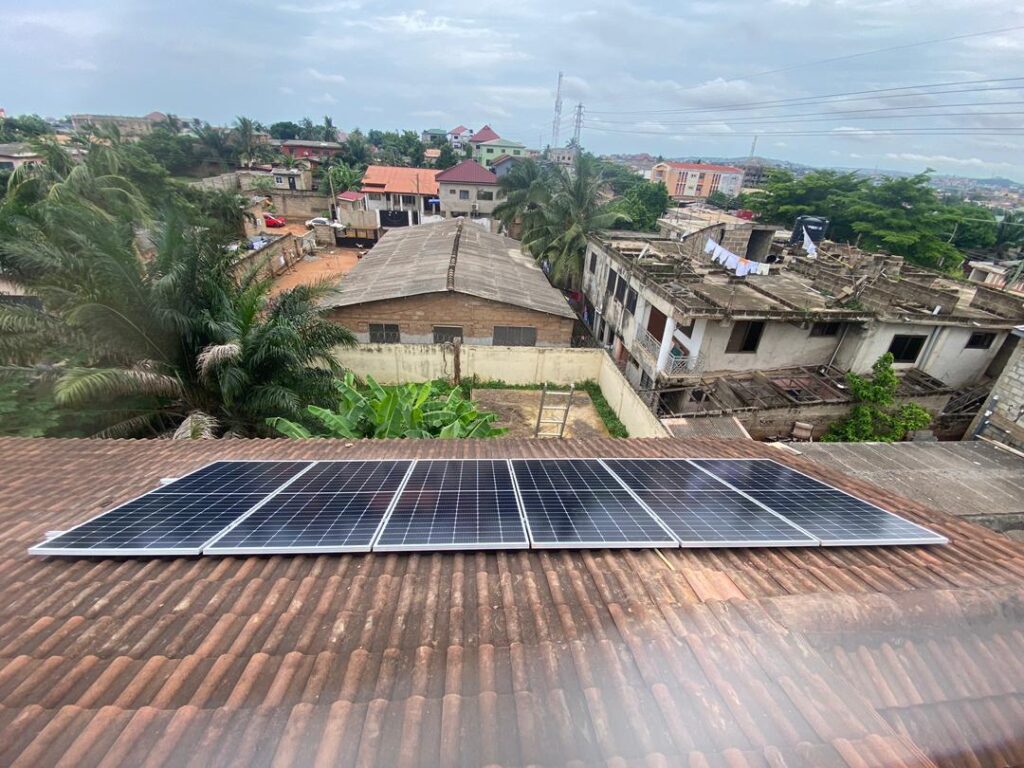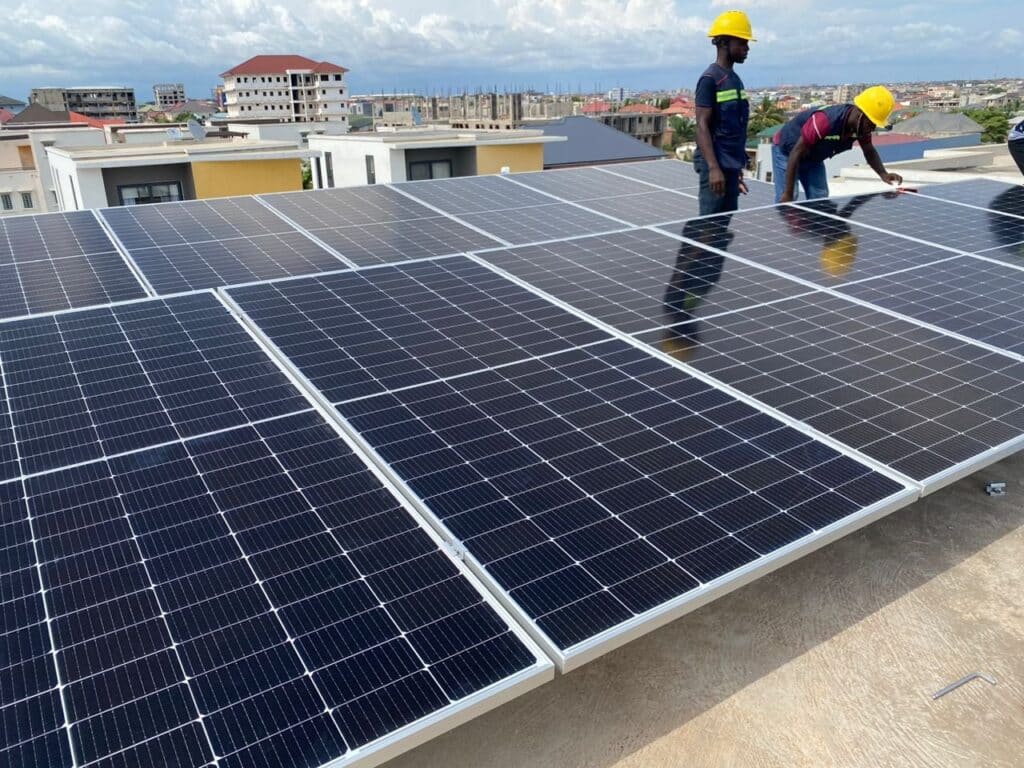Solar Electricity for Home in Ghana: Affordable and Sustainable Solutions
Solar electricity for homes in Ghana provides a sustainable and reliable energy source. It reduces dependency on inconsistent power grids and lowers electricity costs.
Discover affordable and sustainable solar electricity for home in Ghana. Reduce your energy bills and enjoy reliable, eco-friendly power solutions for your household.
Ghana, situated near the equator, enjoys abundant sunlight throughout the year. This makes it an ideal location for solar energy solutions. Many households face frequent power outages and high electricity bills. Solar electricity offers an efficient alternative to traditional energy sources.
Installing solar panels can significantly cut costs and provide a consistent power supply. It also contributes to environmental conservation by reducing the reliance on fossil fuels. As technology advances, the cost of solar installation continues to decrease, making it more accessible. Homeowners in Ghana can benefit immensely from adopting solar energy, ensuring energy security and financial savings.

Introduction To Solar Electricity
Solar electricity uses sunlight to produce power. This clean energy is great for homes. It helps reduce electricity costs and is eco-friendly. Many Ghanaian homes are switching to solar power. Let’s explore why solar power is a good option.
Why Solar Power?
Solar power is renewable. It never runs out. Ghana has plenty of sunlight. This makes it perfect for solar energy. Solar panels can last for many years. They need little maintenance. Solar power is also safe and quiet.
Benefits of Solar Power for Ghanaian Homes
1. Cost Savings
Switching to solar power significantly reduces electricity bills. Over time, your investment in solar panels pays off by cutting down monthly utility costs.
2. Reliability
Solar energy provides a consistent and reliable power supply, reducing the impact of frequent power cuts common in many areas.
3. Eco-Friendly
By using solar power, you contribute to a greener future. Solar panels help reduce your home’s carbon footprint, supporting environmental sustainability.
4. Energy Independence
Solar power gives you freedom from reliance on the grid. You can produce your own electricity, ensuring greater control over your energy needs.
Detailed Benefits Table
| Benefit | Description |
|---|---|
| Cost Savings | Significantly reduces monthly electricity bills. |
| Reliability | Ensures a consistent power supply, minimizing outages. |
| Eco-Friendly | Helps reduce carbon emissions for a greener environment. |
| Energy Independence | Empowers you to generate and control your electricity. |
Solar Power Basics
Solar electricity for homes in Ghana is gaining popularity. This is because it is sustainable and cost-effective. Understanding the basics of solar power can help you make informed decisions.
How Solar Panels Work
Solar panels convert sunlight into electricity. They are made of photovoltaic cells. These cells absorb sunlight and create direct current (DC) electricity. An inverter then changes this DC electricity into alternating current (AC). This AC electricity powers home appliances.
Solar panels work best in sunny areas. Ghana’s climate is ideal for solar energy. The panels are placed on rooftops for maximum sun exposure.
Types of Solar Electricity for Home in Ghana
Solar systems come in different types, each tailored to specific needs and situations. Choosing the right type ensures maximum efficiency and benefits for your home.
1. Grid-Tied Solar Systems
These systems are connected to the local power grid, allowing you to:
- Use both solar power and electricity from the grid.
- Send excess energy back to the grid, which can reduce your electricity costs.
Best For: Homes with reliable access to the power grid looking to reduce electricity bills.
2. Off-Grid Solar Systems
These systems operate independently from the power grid. They:
- Store energy in batteries for later use.
- Are ideal for remote areas without grid access.
Best For: Rural homes or locations with unreliable grid connectivity.
3. Hybrid Solar Systems
Combining the features of grid-tied and off-grid systems, hybrid solar systems:
- Use batteries to store energy for backup.
- Allow you to send excess energy to the grid for added savings.
- Offer the most flexibility and energy security.
Best For: Homeowners seeking energy independence and backup power for emergencies.

Comparison Table of Solar System Types
| Type | Description | Ideal For |
|---|---|---|
| Grid-Tied Systems | Connected to the grid; excess energy is sent back to the grid. | Homes with reliable grid access. |
| Off-Grid Systems | Independent from the grid; stores energy in batteries. | Remote or rural homes without grid access. |
| Hybrid Systems | Combines grid-tied and off-grid features; uses batteries and allows sending excess energy to the grid. | Homes seeking flexibility and backup. |
Cost And Affordability
Solar electricity is a great way to save money. Many people in Ghana are choosing it. It’s important to understand the costs involved. There are initial costs and long-term savings to consider.
Initial Investment
Setting up solar electricity requires an initial investment. This includes buying solar panels, inverters, and batteries. Below is a table that shows the average costs in Ghana:
| Item | Average Cost (GHS) |
|---|---|
| Solar Panels | 5,000 – 10,000 |
| Inverters | 2,000 – 5,000 |
| Batteries | 1,000 – 4,000 |
| Installation | 1,500 – 3,000 |
The total initial investment can be high. But it is a one-time cost. Many companies offer financing options to help manage these costs.
Long-term Savings
Once the system is set up, the savings begin. Solar electricity reduces monthly electricity bills. The following list highlights the benefits:
- Lower monthly bills
- Less dependence on the national grid
- Reduced risk of power outages
Over time, the savings outweigh the initial investment. Many households recover their costs within 5-7 years. After that, the electricity is practically free.
Solar systems also last long. Most panels have a lifespan of 25 years. This means decades of savings for Ghanaian homes.

Sustainable Solutions
Solar electricity provides a sustainable solution for homes in Ghana. It offers a clean and renewable energy source. This solution addresses both environmental and energy needs.
Environmental Impact
Solar energy reduces carbon emissions. It helps to fight climate change. Solar panels do not produce harmful pollutants. They provide a cleaner environment for future generations.
Using solar power reduces dependency on fossil fuels. This means less air pollution. Solar power is a green and eco-friendly choice. It helps preserve natural resources.
Energy Independence
Solar electricity provides energy independence. It reduces reliance on the national grid. This can lead to fewer power outages. Homes can have a reliable energy source.
Solar energy systems can be installed on rooftops. This makes them accessible to many households. They require minimal maintenance and offer long-term savings.
| Benefits | Description |
|---|---|
| Cost Savings | Reduces electricity bills over time. |
| Renewable | Solar power is a renewable resource. |
| Low Maintenance | Solar panels require minimal upkeep. |
Local And International Programs
There are various local and international programs supporting solar electricity in Ghana. These programs aim to spread solar energy use across the country.
| Program Name | Support Type | Beneficiaries |
|---|---|---|
| Solar Light for All | Free solar kits | Rural communities |
| Green Energy Ghana | Training and resources | Local entrepreneurs |
| Sunshine Initiative | Funding and technical support | Urban households |
These programs provide both financial and technical aid. They ensure solar energy is accessible and sustainable for all.
Installation And Maintenance
Installing solar electricity at home in Ghana is becoming more popular. Homeowners need to understand the steps involved. Proper installation and maintenance are key. This ensures the system runs efficiently.
Choosing the Right Solar Provider for Your Home
When selecting a solar provider, it’s important to ensure they meet key criteria. Here’s what to consider:
| Criteria | Details |
|---|---|
| Experience | Years of service and the number of successful installations. |
| Certifications | Look for industry-related certifications that demonstrate credibility. |
| Customer Reviews | Positive feedback and testimonials from previous clients. |
| Price | Competitive cost for installation and services, ensuring value for money. |
| Warranties | Warranty period and coverage for peace of mind. |
At Brightest Homes Ghana, we pride ourselves on our experience, customer satisfaction, and offering top-quality, certified products with strong warranties.
Upkeep And Repairs
Regular upkeep keeps the solar system efficient. Clean the solar panels. Remove dust and debris. Inspect for damage or wear. Check the inverter and batteries.
- Cleaning: Clean panels monthly.
- Inspection: Inspect for cracks or damage.
- Inverter: Check for error messages.
- Batteries: Ensure batteries are functioning well.
Hire professionals for repairs. Don’t attempt DIY fixes. Use the provider’s maintenance service. This ensures proper handling of issues.
Success Stories
Solar electricity for homes in Ghana is transforming lives. Many homeowners are now reaping the benefits of reliable and sustainable energy. Below, you’ll find inspiring success stories from those who have made the switch.
Case Studies
Several families in Ghana have shared their experiences with solar power. These case studies highlight their journeys and their positive impacts.
| Family | Location | Benefits |
|---|---|---|
| The Mensahs | Accra | Reduced electricity bills24/7 power supply |
| The Boatengs | Kumasi | Improved home security energy usage |
| The Ados | Tamale | Stable power for business support for education |
Testimonials From Homeowners
Homeowners have shared glowing testimonials about their solar power experiences. Here are a few highlights:
“Switching to solar was the best decision. Our bills are now lower.” – Mr. Mensah, Accra
“We now have power all the time. Our kids can study without interruptions.” – Mrs. Boateng, Kumasi
“Our small business runs smoothly with solar electricity.” – Mr. Ado, Tamale
These success stories from Ghanaian homes showcase the real-world benefits of solar electricity. They highlight reduced costs, reliable power, and improved living conditions.
Future Of Solar Power In Ghana
The future of solar power in Ghana looks bright. Solar electricity can provide clean, renewable energy. It can help reduce reliance on fossil fuels. This can lead to a cleaner environment and better health for everyone. Let’s explore the exciting developments and potential growth in solar power for homes in Ghana.
Technological Advancements
New technologies are making solar power more efficient. These advancements help generate more electricity from the sun. Here are some key technological advancements:
- High-Efficiency Solar Panels: New panels can convert more sunlight into electricity.
- Energy Storage Solutions: Batteries store excess solar energy for use at night.
- Smart Inverters: They optimize the flow of electricity from solar panels to the home.
- Solar Tracking Systems: These systems follow the sun for maximum energy capture.
These technologies make solar power more reliable and cost-effective. They also reduce the cost of solar installations. This makes solar power more accessible to more households in Ghana.
Potential Growth
There is great potential for the growth of solar power in Ghana. The country enjoys abundant sunshine throughout the year. Here are some factors contributing to the potential growth:
- Decreasing Costs: The cost of solar panels and installations is falling.
- Increased Awareness: More people understand the benefits of solar power.
- International Investments: Foreign investors are funding solar projects.
With these factors in place, more Ghanaians can switch to solar power. This will help reduce electricity costs and improve energy independence. Solar power can play a major role in Ghana’s energy future.
Frequently Asked Questions (FAQ)
What Is Solar Electricity?
Solar electricity is power generated from sunlight using solar panels, providing a renewable and sustainable energy source for homes.
How Does Solar Power Work?
Solar panels use photovoltaic cells to convert sunlight into electricity, which can then power appliances and lighting in your home.
Is Solar Energy Cost-effective in Ghana?
Yes, while the initial investment may be significant, solar energy can drastically reduce electricity bills in the long run.
What Are the Benefits of Solar Power?
Solar power lowers electricity bills, reduces carbon footprint, and ensures reliable energy, especially in areas with frequent power cuts.
